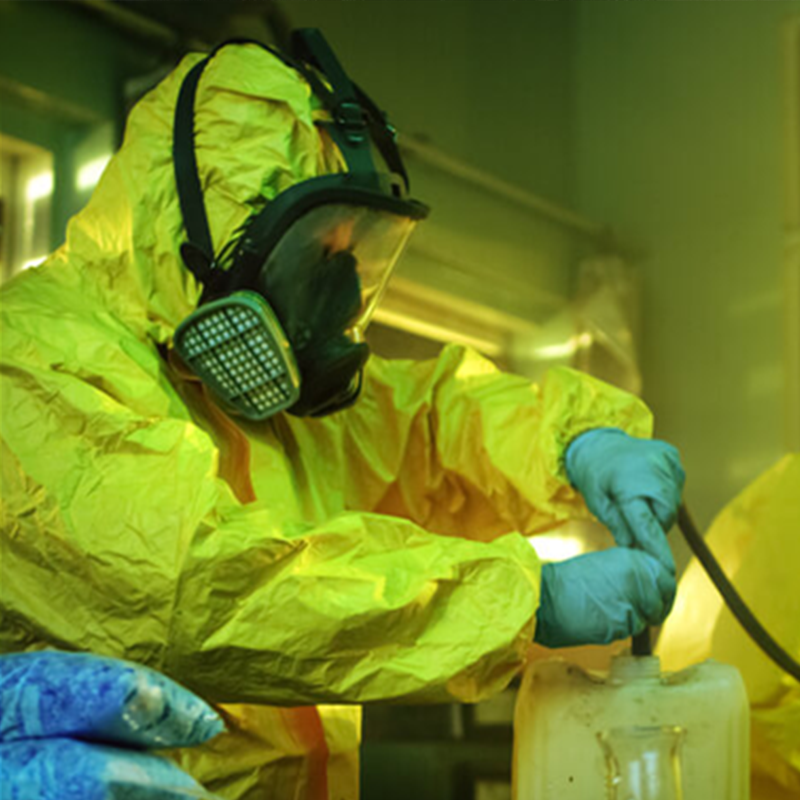
What is a meth lab?
Methamphetamine laboratories are any equipment or system used to produce illegal methamphetamine. They can occur anywhere: in homes, apartments, hotels, restaurants, barns, warehouses, schools, and other buildings.
Mobile methamphetamine labs can even appear in cars, public transport, etc. Sometimes they consist of a system of tools such as burners, rubber tubes and coffee filters. Also, in a typical lab, you might see stockpiled chemicals, propane tanks with blue fittings, or an unusual amount of trash. It usually also accompanies bad odors.
After all, the production of methamphetamine is an explosive process that releases toxic fumes. It also requires a large amount of flammable materials. That’s why many labs being exposed after catching fire.
How to identify a meth lab? What is a meth lab?
You may not notice the meth lab inside the building at first, but there are still some notable signs. As we have already mentioned, the preparation of methamphetamine produces strong odors and toxic fumes. As a result, methamphetamine manufacturers can open windows in cold weather or install fans and blowers.
Also, a methamphetamine lab usually involves dumping chemical waste. As a rule, this leads to dead spots in the vegetation.
Next, keep an eye out for unusual security measures, such as video cameras, no-entry signs, or guard dogs.
Finally, pay attention to whether the inhabitants look paranoid and behave oddly. This may include staying indoors for a long time, smoking frequently outside, and having a large amount of strange people coming over.
You can also find stocks of some of the chemicals used in the production of methamphetamine. Here are some of them: acetone, alcohol, fertilizer, bleach, battery acid, sewage cleaner, hydrogen peroxide, iodine, pseudoephedrine, salt, metallic sodium and lithium, starter fluid, swimming pool chemicals, and gun cleaning solvent. What is a meth lab?
Other equipment used for the production of methamphetamine may include: lithium batteries, aluminum foil, sheets, blenders, bottles, chemical glassware, camping stoves, gauze, coffee filters, cotton balls, duct tape, portable electric stoves, funnels, garden spray jugs, gas canisters, pitchers, test strips PH, plastic tubes, pressure cookers, propane tanks and thermos flasks, pyrex plates, rags, rubber and latex gloves, filters, thermometers, and turkey basting sticks.
Be safe
If you find signs of a methamphetamine lab or any of the materials we've listed, it's best to check this property right away. We also suggest that you entrust disinfection to professionals. Making methamphetamine is also a highly flammable and explosive process, so it's best to put safety first and avoid putting yourself in danger.
Likewise, please do not speak out against anyone you suspect of making methamphetamine. It is a mind-altering substance that can cause irrational and impulsive behavior. Instead, call your local law enforcement with your suspicions.
However, to decontaminate meth labs or to check the site for methamphetamine residues, call a certified decntamination specialist in your area. If you are located in Utah, please call the AES at (435) 764-2400. What is a meth lab?